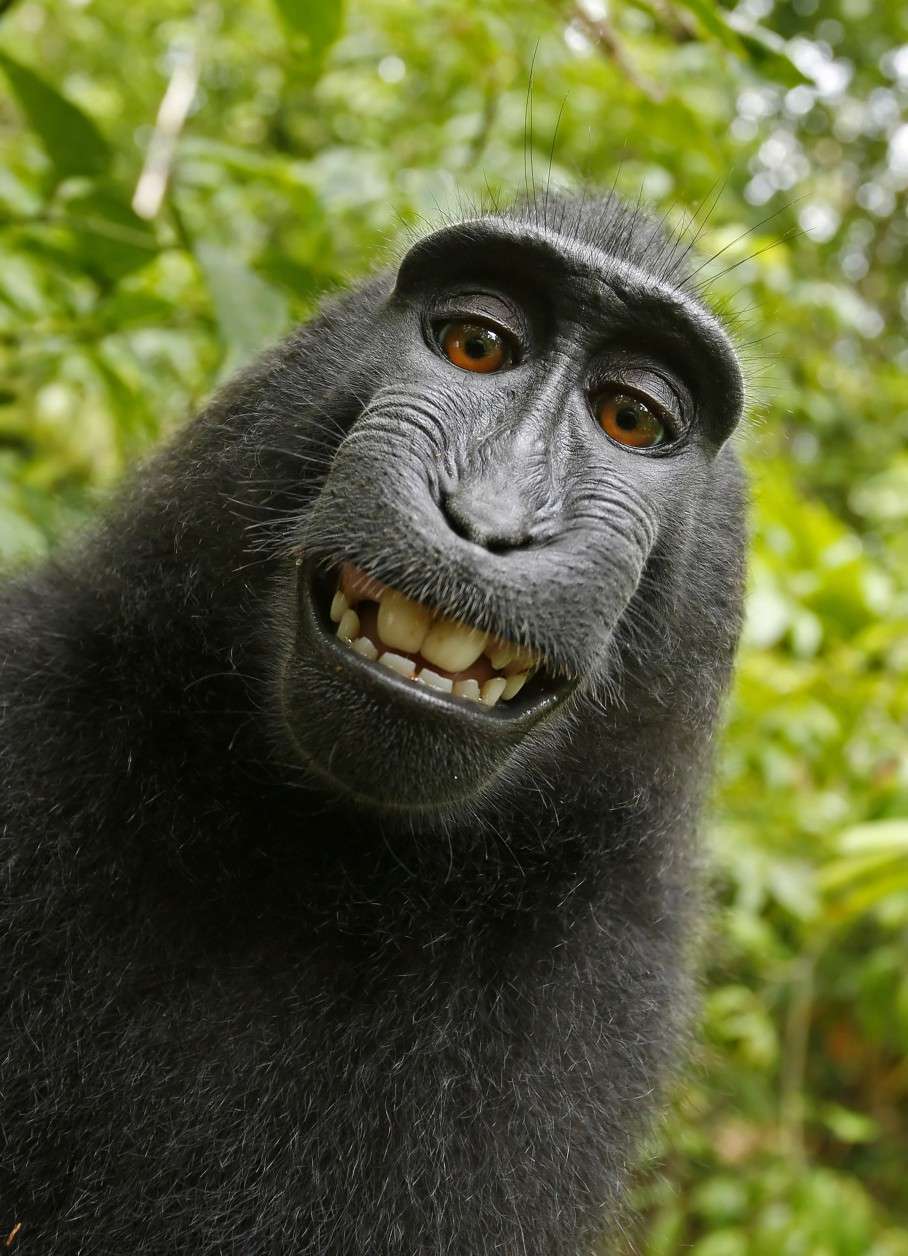The Volokh Conspiracy
Mostly law professors | Sometimes contrarian | Often libertarian | Always independent
'Monkey see, monkey sue is not good law'

Quite the motion, from Andrew J. Dhuey, in the monkey selfie copyright case:
INTRODUCTION
A monkey, an animal-rights organization and a primatologist walk into federal court to sue for infringement of the monkey's claimed copyright. What seems like the setup for a punchline is really happening. It should not be happening. Under Cetacean Community v. Bush, 386 F.3d 1169 (9th Cir. 2004), dismissal of this action is required for lack of standing and failure to state a claim upon which relief can be granted. Monkey see, monkey sue is not good law - at least not in the Ninth Circuit.
RELEVANT FACT
The only pertinent fact in this case is that Plaintiff is a monkey suing for copyright infringement. Plaintiff's factual assertions regarding the creation of the famous Monkey Selfie photograph are fundamentally erroneous, but they must be accepted as true for purposes of this Motion to Dismiss. (Regardless, the true story of how this photograph came to be is available at http://www.djsphotography.co.uk/original_story.html.)
ARGUMENT
"[I]f Congress and the President intended to take the extraordinary step of authorizing animals as well as people and legal entities to sue, they could, and should, have said so plainly." Cetacean Community, 386 F.3d at 1179. In Cetacean Community, the Ninth Circuit rejected the notion that non-human animals could have standing under four Acts of Congress, including two that Congress enacted for the protection of animals: the Endangered Species Act and the Marine Mammal Protection. The standing inquiry for animals under Cetacean Community is very simple: unless Congress has plainly stated that animals have standing to sue, the federal courts will not read any legislation to confer statutory standing to animals.
Congress has not plainly stated that non-human animals have standing to sue for copyright infringement. Nothing in Title 17 of the United States Code even hints at that possibility. Indeed, imagining a monkey as the copyright "author" in Title 17 of the United States Code is a farcical journey Dr. Seuss might have written. The "children" of an "author" can inherit certain rights, "whether legitimate or not" and that includes "children legally adopted" by the author. See 17 U.S.C. §§ 101, 201, 203 and 304. An author's "widow or widower owns the author's entire termination interest unless there are any surviving children or grandchildren of the author, in which case the widow or widower owns one-half of the author's interest." § 203(a)(2)(A). Accepting Plaintiff's standing argument would present the bizarre possibility of protracted family and probate court battles when the offspring of non-human authors scrum over the rights to valuable works.
To be sure, there are quite reasonable arguments for conferring legal standing for animals (via human ad litem representatives) in some areas of law - especially with regard to legislation enacted to protect the animals in question. The law of trusts now expressly recognizes the legitimacy of trusts for the benefit of non-human animals. Defendants David Slater, a nature photographer who is deeply concerned about animal welfare, and WPL wholeheartedly embrace legal standing and property rights for animals in those contexts.
Still, if the humans purporting to act on Plaintiff's behalf wish for copyright to be among the areas of law where non-human animals have standing, they should make that dubious case to Congress - not the federal courts. Enumerating the reasons why animals should not be able to sue for copyright infringement would serve no useful purpose in this motion since controlling Ninth Circuit authority requires dismissal of this action.
As Jordan Weissmann (Slate, Moneybox) notes, "'monkey see, monkey sue,' is the sort of line lawyers spend years dreaming they will one day get to write in a federal court document."
Thanks to Kevin Gerson for the pointer.


Show Comments (0)